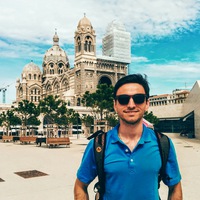Пустые рамы
На день рождения мне подарили «Блокадную книгу» - собранную и записанную Даниилом Граниным с Алесем Адамовичем документальную хронику блокады. Читаю её потихоньку, запоем, как я люблю, не выходит: слишком сильна и страшна концентрированная правда о том, что пришлось вынести рассказчикам. Для пропуска всего этого внутрь себя требуется время.
Вчера вечером я как обычно взяла её в руки перед сном и прочла там о совершенно изумительном случае, произошедшем в Эрмитаже.
В блокаду практически все экспонаты и картины были эвакуированы, однако по распоряжению тогдашнего директора Орбели в залах оставили пустые рамы – после войны именно благодаря этому экспозицию удалось восстановить буквально за десять дней.
Как-то раз сотруднику Эрмитажа Павлу Филипповичу Губчевскому понадобилась помощь. Нужно было перетащить средневековую мебель, оказавшуюся в затопленных помещениях, в безопасное место. Старушки смотрительницы, находившиеся в его подчинении, были слишком слабы для такой работы. Ему на подмогу прислали курсантов - молодых и относительно, по меркам блокады, сильных парней. Курсанты справились со своей задачей, и их надо было как-то отблагодарить. Молодых людей построили, произнесли благодарность, а потом Павел Филиппович решил провести для них экскурсию. И он повел их на экскурсию по Эрмитажу, по пустым рамам! Опустевшие, голые рамы, большие и меленькие, покрытые позолотой и резьбой стали для него обозначением живших внутри столько лет полотен. С помощью слов, воображения и своих знаний он буквально писал в воздухе перед этими ребятами Рембрандта, Веласкеса и Тициана.
Курсанты стояли в насквозь промороженных, покрытых изморозью парадных залах и вглядывались в пространство, захваченное рамами, где благодаря словам этого человека космические линии рождали фигуры и предметы, сюжеты и метафоры, подобно настоящим произведения искусства, вызывая у зрителей чувства и эмоции…
История об этой невероятной блокадной экскурсии сразила меня просто напрочь. Я не могла уснуть, не могла остановиться, снова и снова создавая в голове образ нашего военного города, в котором среди руин, смерти, копоти, беспросветного страшного голода и постоянных бомбежек в Эрмитаже идет экскурсия по пустым рамам. На мой взгляд, лучшей иллюстрации силе человеческой души и сумасшедшей воле к жизни быть просто не может.
Этой ночью я не могла уснуть – мне хотелось орать и ехать в Эрмитаж прямо сейчас, чтобы представить себе, встать перед настоящими полотнами, перед теми, что я знаю и люблю, и представить себе, что рамы пусты.
На день рождения мне подарили «Блокадную книгу» - собранную и записанную Даниилом Граниным с Алесем Адамовичем документальную хронику блокады. Читаю её потихоньку, запоем, как я люблю, не выходит: слишком сильна и страшна концентрированная правда о том, что пришлось вынести рассказчикам. Для пропуска всего этого внутрь себя требуется время.
Вчера вечером я как обычно взяла её в руки перед сном и прочла там о совершенно изумительном случае, произошедшем в Эрмитаже.
В блокаду практически все экспонаты и картины были эвакуированы, однако по распоряжению тогдашнего директора Орбели в залах оставили пустые рамы – после войны именно благодаря этому экспозицию удалось восстановить буквально за десять дней.
Как-то раз сотруднику Эрмитажа Павлу Филипповичу Губчевскому понадобилась помощь. Нужно было перетащить средневековую мебель, оказавшуюся в затопленных помещениях, в безопасное место. Старушки смотрительницы, находившиеся в его подчинении, были слишком слабы для такой работы. Ему на подмогу прислали курсантов - молодых и относительно, по меркам блокады, сильных парней. Курсанты справились со своей задачей, и их надо было как-то отблагодарить. Молодых людей построили, произнесли благодарность, а потом Павел Филиппович решил провести для них экскурсию. И он повел их на экскурсию по Эрмитажу, по пустым рамам! Опустевшие, голые рамы, большие и меленькие, покрытые позолотой и резьбой стали для него обозначением живших внутри столько лет полотен. С помощью слов, воображения и своих знаний он буквально писал в воздухе перед этими ребятами Рембрандта, Веласкеса и Тициана.
Курсанты стояли в насквозь промороженных, покрытых изморозью парадных залах и вглядывались в пространство, захваченное рамами, где благодаря словам этого человека космические линии рождали фигуры и предметы, сюжеты и метафоры, подобно настоящим произведения искусства, вызывая у зрителей чувства и эмоции…
История об этой невероятной блокадной экскурсии сразила меня просто напрочь. Я не могла уснуть, не могла остановиться, снова и снова создавая в голове образ нашего военного города, в котором среди руин, смерти, копоти, беспросветного страшного голода и постоянных бомбежек в Эрмитаже идет экскурсия по пустым рамам. На мой взгляд, лучшей иллюстрации силе человеческой души и сумасшедшей воле к жизни быть просто не может.
Этой ночью я не могла уснуть – мне хотелось орать и ехать в Эрмитаж прямо сейчас, чтобы представить себе, встать перед настоящими полотнами, перед теми, что я знаю и люблю, и представить себе, что рамы пусты.
Empty frames
For my birthday I was presented with the “Blockade Book” - a documentary chronicle of the blockade compiled and recorded by Daniil Granin and Ales Adamovich. I read it slowly, binge, as I like, does not work: the concentrated truth about what the storytellers had to endure is too strong and terrible. It takes time to let all of this go inside.
Last night, as usual, I took it in my hands before going to bed and read about the absolutely amazing case that happened in the Hermitage.
Almost all exhibits and paintings were evacuated during the blockade, but by order of the then director Orbeli, empty frames were left in the halls - after the war it was thanks to this that the exposition was restored in just ten days.
Once, Hermitage employee Pavel Filippovich Gubchevsky needed help. It was necessary to drag the medieval furniture, which appeared in the flooded rooms, to a safe place. The caretaker's old women, who were under his command, were too weak for such a job. He was sent to help cadets - young and relatively, by the standards of the blockade, strong guys. The cadets coped with their task, and they had to be thanked somehow. Young people were built, thanks were expressed, and then Pavel Filippovich decided to conduct an excursion for them. And he led them on a tour of the Hermitage, through empty frames! Empty, bare frames, large and small, covered with gilding and carving became for him the designation of paintings that had been living inside for so many years. With the help of words, imagination and his knowledge, he literally wrote in the air in front of these guys Rembrandt, Velazquez and Titian.
The cadets stood through the frozen-through, frost-covered front rooms and peered into the space captured by the frames, where, thanks to the words of this man, cosmic lines gave rise to figures and objects, plots and metaphors, like real works of art, evoking feelings and emotions among the audience ...
The story of this incredible blockade excursion struck me completely. I could not sleep, I could not stop, again and again creating in my head the image of our military city, in which among the ruins, death, soot, hopeless hunger and constant bombing in the Hermitage there is a tour of empty frames. In my opinion, there simply cannot be a better illustration of the strength of the human soul and the crazy will to live.
This night I could not fall asleep - I wanted to yell and go to the Hermitage right now to imagine, to stand in front of real canvases, in front of those that I know and love, and imagine that the frames are empty.
For my birthday I was presented with the “Blockade Book” - a documentary chronicle of the blockade compiled and recorded by Daniil Granin and Ales Adamovich. I read it slowly, binge, as I like, does not work: the concentrated truth about what the storytellers had to endure is too strong and terrible. It takes time to let all of this go inside.
Last night, as usual, I took it in my hands before going to bed and read about the absolutely amazing case that happened in the Hermitage.
Almost all exhibits and paintings were evacuated during the blockade, but by order of the then director Orbeli, empty frames were left in the halls - after the war it was thanks to this that the exposition was restored in just ten days.
Once, Hermitage employee Pavel Filippovich Gubchevsky needed help. It was necessary to drag the medieval furniture, which appeared in the flooded rooms, to a safe place. The caretaker's old women, who were under his command, were too weak for such a job. He was sent to help cadets - young and relatively, by the standards of the blockade, strong guys. The cadets coped with their task, and they had to be thanked somehow. Young people were built, thanks were expressed, and then Pavel Filippovich decided to conduct an excursion for them. And he led them on a tour of the Hermitage, through empty frames! Empty, bare frames, large and small, covered with gilding and carving became for him the designation of paintings that had been living inside for so many years. With the help of words, imagination and his knowledge, he literally wrote in the air in front of these guys Rembrandt, Velazquez and Titian.
The cadets stood through the frozen-through, frost-covered front rooms and peered into the space captured by the frames, where, thanks to the words of this man, cosmic lines gave rise to figures and objects, plots and metaphors, like real works of art, evoking feelings and emotions among the audience ...
The story of this incredible blockade excursion struck me completely. I could not sleep, I could not stop, again and again creating in my head the image of our military city, in which among the ruins, death, soot, hopeless hunger and constant bombing in the Hermitage there is a tour of empty frames. In my opinion, there simply cannot be a better illustration of the strength of the human soul and the crazy will to live.
This night I could not fall asleep - I wanted to yell and go to the Hermitage right now to imagine, to stand in front of real canvases, in front of those that I know and love, and imagine that the frames are empty.


У записи 19 лайков,
0 репостов.
0 репостов.
Эту запись оставил(а) на своей стене Татьяна Батурина





































